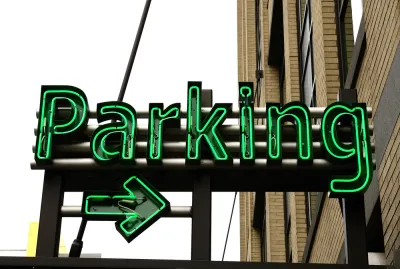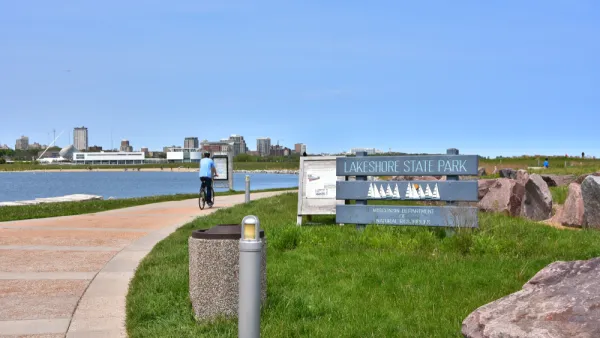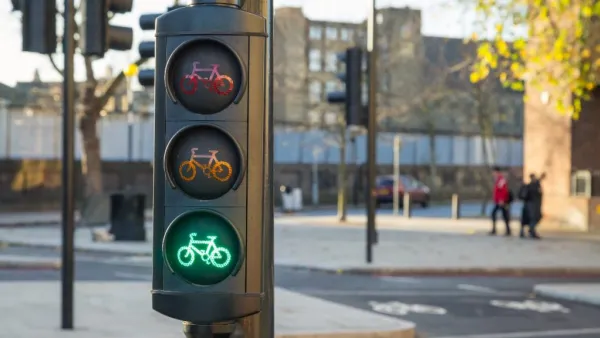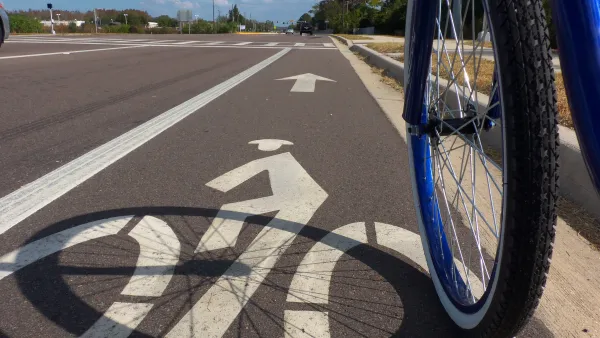With so much to learn just by reading a Wall Street Journal book review of "Bike Battles: A History of Sharing the American Road" by James Longhurst, history professor at University of Wisconsin-La Crosse, imagine what's to learn by reading the book.

 "'Park' became a verb in the early 1900s when there were small greenways—parks—alongside roads, and motorists left their cars there while they shopped or walked, writes reviewer Grant Petersen, a bicycling author himself and bike mail order store owner in Walnut Creek, Calif.
"'Park' became a verb in the early 1900s when there were small greenways—parks—alongside roads, and motorists left their cars there while they shopped or walked, writes reviewer Grant Petersen, a bicycling author himself and bike mail order store owner in Walnut Creek, Calif.
Bike Battles: A History of Sharing the American Road by James Longhurst, Publication Date: April 15, 2015.
Petersen reveals that the pre-auto days of bicycling were rampant with classism and racism.
Bikes were so expensive that only the rich rode—a virtue in the eyes of many, because it allowed showing off and kept out the riff raff. The League of American Wheelmen (now the League of American Bicyclists) wanted bikes to remain high-brow and, in 1894, banned black members...It was a bad start for cycling, and could explain why recreational bike riding among adults in the U.S. is still a mostly white affair.
What's incredible is how quickly the auto changed the American urbanscape. "In the first two decades of the 20th century, roads that had until then been shared by pedestrians, street vendors, cyclists and horse carriages were turned over to cars, making them dangerous for everybody else," writes Petersen. When World War II ended, "our unbridled, auto-obsessed country went nuts designing urban environments and roadways around cars."
However, the best part of the review is Petersen's description of the demographic aspects of bicycling—from a generational perspective—particularly applicable to baby boomers like myself. "After the war, only children rode bikes, so bikes became a symbol of childhood."
No wonder bike riders in the ’50s and ’60s turned to cars as soon as they were of driving age and didn’t look back. Car-favoring laws and road designs have had staying power, and 50 years of car domination have given us generations of motorists who have never known anything else and understandably consider the road their birthright.
That brings up the question of how other generations, such as millennials who are perhaps more comfortable on a bike or bus seat than they are behind the steering wheel of a vehicle they own, will shape roads and the urban landscape.
It was gratifying to find that Longhurst applies his knowledge of bicycling to making the University of Wisconsin campus more bike-friendly. Ditto for the city of La Crosse.
FULL STORY: Grant Petersen on the history of the American bike

Analysis: Cybertruck Fatality Rate Far Exceeds That of Ford Pinto
The Tesla Cybertruck was recalled seven times last year.

National Parks Layoffs Will Cause Communities to Lose Billions
Thousands of essential park workers were laid off this week, just before the busy spring break season.

Retro-silient?: America’s First “Eco-burb,” The Woodlands Turns 50
A master-planned community north of Houston offers lessons on green infrastructure and resilient design, but falls short of its founder’s lofty affordability and walkability goals.

Test News Post 1
This is a summary

Analysis: Cybertruck Fatality Rate Far Exceeds That of Ford Pinto
The Tesla Cybertruck was recalled seven times last year.

Test News Headline 46
Test for the image on the front page.
Urban Design for Planners 1: Software Tools
This six-course series explores essential urban design concepts using open source software and equips planners with the tools they need to participate fully in the urban design process.
Planning for Universal Design
Learn the tools for implementing Universal Design in planning regulations.
EMC Planning Group, Inc.
Planetizen
Planetizen
Mpact (formerly Rail~Volution)
Great Falls Development Authority, Inc.
HUDs Office of Policy Development and Research
NYU Wagner Graduate School of Public Service




























